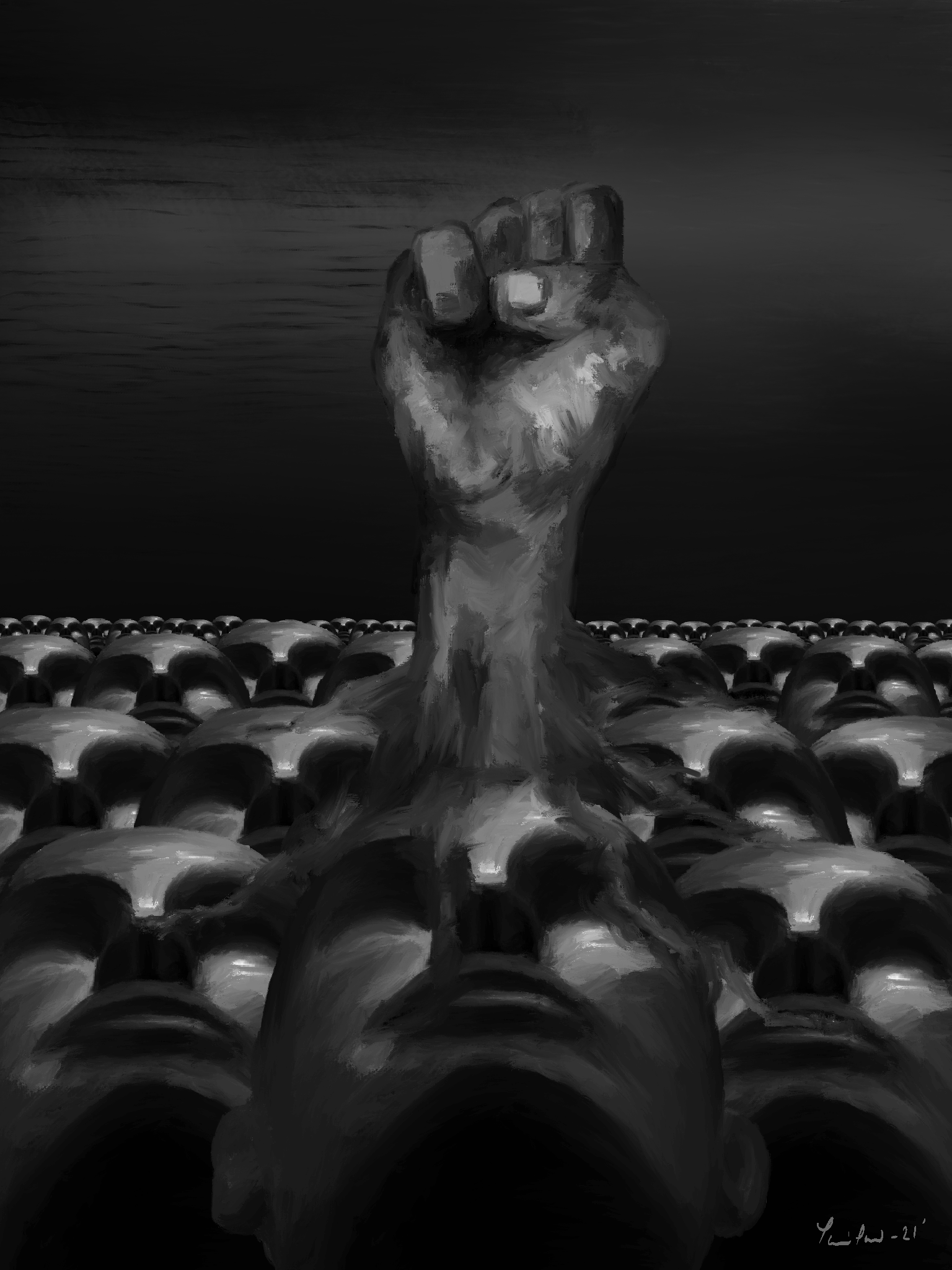நாமார்க்குங் குடியல்லோம் நமனை யஞ்சோம்
நரகத்தி லிடர்ப்படோம்நடலை யில்லோம்
naamaarkum kudiyallom, namanai anjom
naragathil idar padom, nadalai illom
We are not the subjects of anyone
We do not fear the god of death
We shall not suffer, were we to end in hell
We’ve no deception, we’ve no illusions.
naamaarkum kudiyallom, namanai anjom
naragathil idar padom, nadalai illom
Nobody’s citizens and nobody’s slaves
Fearless of lynchings and beheadings
Unscathed by the torrent of hell-fires
We do not tremble at certain death.
naamaarkum kudiyallom, namanai anjom
naragathil idar padom, nadalai illom
As people, we refuse to be ruled
As people, we refuse to die
As people, we refuse to suffer
As people, we refuse to be deceived.
naamaarkum kudiyallom, namanai anjom
naragathil idar padom, nadalai illom
(After the Thevaram, as sung by Appar Thirunavukkarasar)
Notes:
1. “Naamaarkum kudiyallom, namanai anjomnaragathil idar padom, nadalai illom” are lines from the classic Tamil poetry of the Bhakti poet Thirunavukkarasar (Appar), who was persecuted for his faith in Shaivism by Mahendravarman, the Jain Pallava emperor . It’s widely believed that these lines were sung when efforts were made to arrest him and produce him in Mahendravarman’s court. Because the seventh century Tamil of Appar is still in use — and at the same time, some words have fallen out of the everyday vocabulary — it opens up to all of these renderings, all of these translations. This declaration, that we are not citizens/subjects, is a radical slogan to throw in the face of the state. In today’s world, rife with the refugee crisis, these words resonate. They encapsulate the people’s rejection of a state and, closer home, brings to mind the poet/writer’s disowning her/ his association with a state.
2. This poem is a rendering in the form of an independent poem. The initial lines are word-for-word, but later, the poem begins to convey the spirit without taking away from the meaning of the poem. Also, the plural address and collective speech amplify the voice beyond that of one poet.

